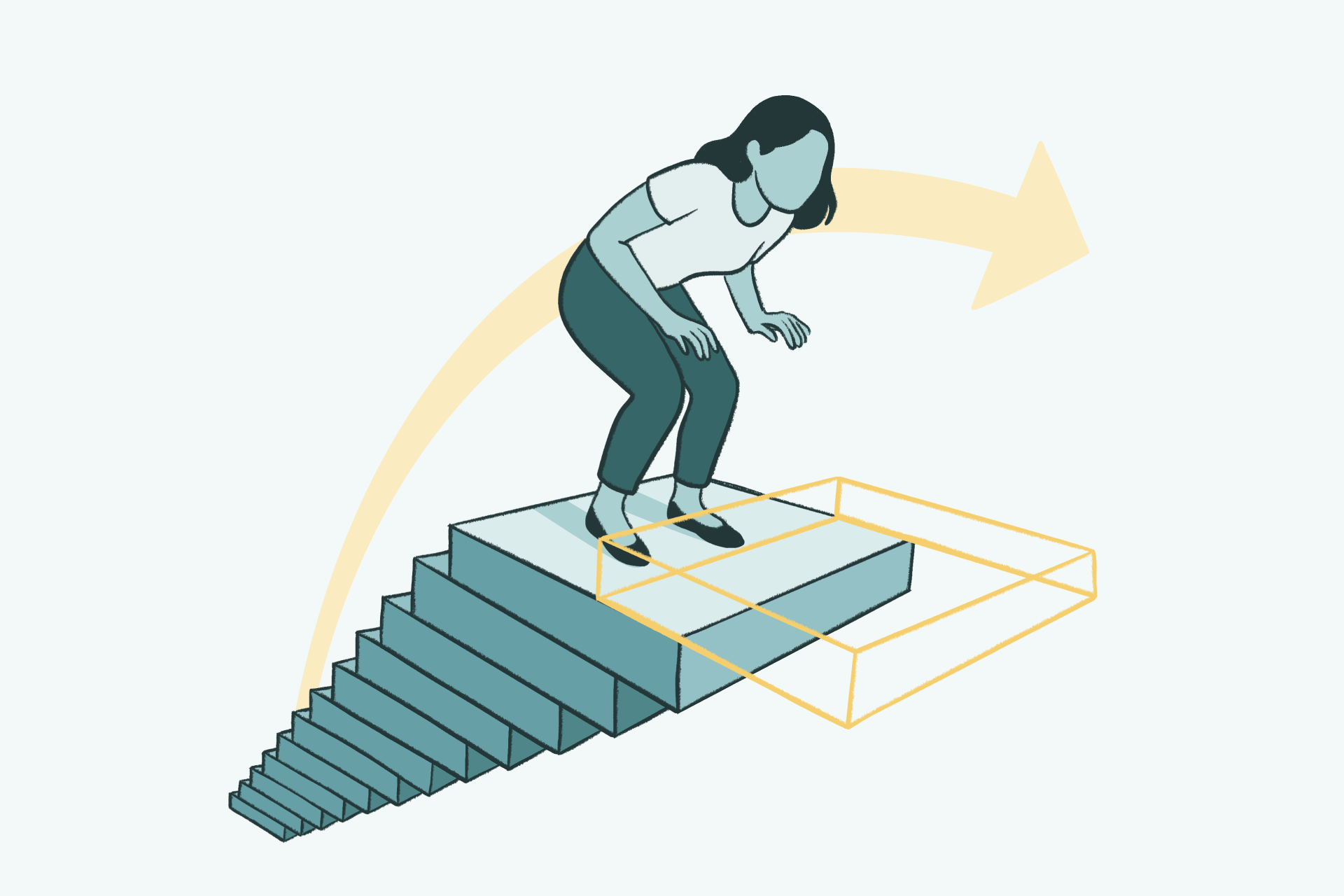Learn / What Is the 13th Step of AA?
What Is the 13th Step of AA?


June 15th, 2023| Clinically Reviewed by
Key Points
- "13th Step" is a romantic/sexual relationship between an AA veteran and a new member.
- These can be harmful to newcomers, who are in a vulnerable phase of recovery.
- To protect yourself, you can avoid dating in early recovery and seek reliable support.
While there are only 12 official steps in Alcoholics Anonymous (AA), you might hear about an unofficial “13th Step.” This term refers to a romantic or sexual relationship between an AA veteran and a new member.
Even if your feelings are real, these relationships can be very harmful. People just joining AA are typically in the early stages of sobriety. This is a vulnerable time. Long-term AA members can easily take advantage of newcomers, whether they mean to or not.
You have the right to feel safe in your recovery. If an AA member makes you uncomfortable, check in with your support network. This might include your therapist, your sponsor, or other AA members with whom you have a trusting relationship.
Taking the 13th Step or “13th Stepping”
The 13th Step isn’t just about sex.1 There’s a power imbalance between people in different stages of healing. AA veterans often have authority within their group, especially over new members. By dating or having sex with people in early recovery, 13th Steppers take advantage of their position.
Many people are vulnerable when they first join AA.2 If drinking has damaged your past relationships, you might be socially isolated. At the same time, most AA newcomers are still learning how to set healthy boundaries. So you might turn to long-term members for advice and emotional support.
At first, 13th Steppers may seem like trustworthy role models—and many veteran AA members have the best intentions. But others use 12-Step meetings to look for newcomers they can pursue. And because most 12-Step groups are relatively informal,3 it can be hard to hold members accountable.
Who’s Considered a 13th Stepper?
It’s important to note that anyone can be a 13th Stepper.4 The term refers to the power dynamic between long-term and recent sobriety. Age, gender and other aspects of identity can add to a 13th Stepper’s apparent authority.
Are Any Intimate Relationships Possible Within AA?
While some 13th Steppers actively prey on people who are new to the program, these dynamics aren’t always black and white. For example, some experienced AA members may feel genuinely attracted to a new member. And for many people in recovery, it’s easier to date people who share your history of addiction. It could even seem like starting an intimate relationship within AA will support your healing process.
However, 13th Stepping isn’t that simple. It puts AA veterans in a sponsor-like role that can boost their self-esteem. It can also make newcomers feel indebted to their partners. Often, these dangers outweigh any potential benefits.
If you’ve been sober for some time, you might be able to date someone with a similar history. When you meet on equal terms, the power dynamics of the 13th Step may not apply. But any romance within AA can still affect your recovery. Even relationships between peers can end dramatically. In that case, seeing each other at meetings could be painful. If you decide to date someone else in recovery, it’s safer to make sure each of you has your own sober support network.
The Dangers of 13th Stepping
When you’re new to the 12 Steps, AA meetings are a place to find support, solace and community. The 13th Step has the opposite effect. When veterans prey on newcomers, dating in early recovery can increase your risk of relapse.5
Takes Time and Energy Away From Recovery
It’s standard advice in AA to abstain from starting a new romantic relationship6 for the first year of recovery. During that time, it’s essential to focus on yourself. New sexual relationships take up a lot of time and energy. As comforting as that can be, they also distract you from healing.
Increases Stress
Even positive relationships increase stress, which is a major contributor to relapse.7 And going through a breakup is even more stressful. It can also jeopardize your emotional safety within your AA group.
Alienates Newcomers From AA
13th Stepping is predatory. When AA veterans make sexual advances, they put unfair pressure on new members. The new person might feel like if they say no, they’ll have to leave the group. That cuts them off from valuable community support.
Puts Newcomers at Risk
13th Stepping isn’t only distracting and isolating; it can also cause outright harm. There are documented cases of predatory AA veterans assaulting newcomers. Monica Richardson’s film The 13th Step8 describes many of these cases, exposing how some AA members take advantage of people in early recovery.
13th Stepping is not only dangerous, but indicates a need for additional professional help. If someone shifts from managing their addiction to predatory behavior, this could be a sign of other behaviors that require attention.
Explore Twelve Step Treatment Centers
How to Best Navigate a 12-Step Program
A 13th Stepper’s predatory behavior is never the newcomer’s fault. But if you join AA, you can still take certain precautions to keep yourself safe during early recovery.
Consider a Break From Dating and Intimacy
Dating and intimacy can distract you from the healing process. By taking a break, you prioritize your own needs. You can use this time to get to know yourself in this new phase of your life. When you’re ready to date again, you’ll have a much clearer sense of what you want in a romantic relationship.
Get Community Support
If someone in AA makes you uncomfortable, talk to other members you trust. Consult the literature, ask your sponsor, and check in with loved ones. You can also ask your therapist what they think. When other people know what’s happening, they can hold both you and the other group member accountable.
Learn About Sponsorship
Sponsors are there to help you work the Steps.9 They shouldn’t coerce you to make a particular decision, and they should never have sex with you. In this dynamic, even consensual sex is harmful. If your sponsor acts inappropriately, you have every right to end the relationship and find a new sponsor.
Observe and Report Predatory Behavior
12-Step veterans with good intentions don’t make advances on newcomers. If you notice someone making sexual advances—toward you or another new member—keep your distance. You can also talk to other group members about what’s happening. If that doesn’t help, you can leave and look for a different 12-Step group in the area or online.
Find a 12-Step Program That Works for You
The 13th Step can cause serious harm. It’s important to be aware of this dangerous dynamic, so you can focus on your healing process. People seeking support for addiction recovery deserve to feel safe in AA.
Every 12-Step group is unique. If you think the 12 Steps would be a good fit for you, search 12-Step rehab programs to begin your recovery journey.
Frequently Asked Questions About 13th Stepping
Who is considered a “13th Stepper?”
Anyone can be a 13th Stepper. This refers to the power dynamic between long-term 12-Step members and those in early recovery, irrespective of age, gender, or identity.
Are any intimate relationships possible within AA?
While it may seem tempting to date someone with a shared history of addiction, the dangers of the 13th Step, such as power imbalances and emotional dependencies, often outweigh the potential benefits. It’s crucial to prioritize your recovery and seek support from your own sober support network.
What are the dangers of the 13th Step in AA?
Engaging in the 13th Step can lead to risks like increased vulnerability to relapse, diverting your focus from recovery, heightened stress levels, potential emotional harm, and isolation from a supportive AA community. It’s crucial to be aware of these dangers and take necessary precautions to safeguard your well-being in early recovery.
-
“Inside the World of ‘13th-Steppers,’ People Who Prey on Recovering Substance Abusers.” Yahoo News, 5 Apr. 2016, https://ca.news.yahoo.com/inside-world-13th-steppers-people-215600907.html.
-
Laudet AB, Savage R, Mahmood D. Pathways to long-term recovery: a preliminary investigation. J Psychoactive Drugs. 2002 Jul-Sep;34(3):305-11. doi: 10.1080/02791072.2002.10399968. PMID: 12422942; PMCID: PMC1852519.
-
The A.A. Group | Alcoholics Anonymous. https://www.aa.org/the-aa-group. Accessed 29 May 2023.
-
Lainas, Sotiris & Kouimtsidis, Christos. (2022). Approaching the field of addictions through the lens of the gender perspective: emerging issues. 10.1108/DHS-12-2021-0065.
-
Fleming CB, White HR, Oesterle S, Haggerty KP, Catalano RF. Romantic relationship status changes and substance use among 18- to 20-year-olds. J Stud Alcohol Drugs. 2010 Nov;71(6):847-56. doi: 10.15288/jsad.2010.71.847. PMID: 20946741; PMCID: PMC2965298.
-
Cunha, Darlena. “‘I Was Fresh Meat’: How AA Meetings Push Some Women into Harmful Dating.” The Guardian, 22 Sept. 2015. The Guardian, https://www.theguardian.com/society/2015/sep/22/alcoholics-anonymous-aa-women-dating-addition-rehab.
-
Sinha R. How does stress lead to risk of alcohol relapse? Alcohol Res. 2012;34(4):432-40. PMID: 23584109; PMCID: PMC3788822.
-
13th Step -a Film by Monica Richardson. www.youtube.com, https://www.youtube.com/watch?v=-iUd6qZRSi8. Accessed 29 May 2023.
-
Questions and Answers on Sponsorship | Alcoholics Anonymous. https://www.aa.org/questions-and-answers-sponsorship. Accessed 29 May 2023.
Return to Resource Library
Our Promise
How Is RehabPath Different?
We believe everyone deserves access to accurate, unbiased information about mental health and addiction. That’s why we have a comprehensive set of treatment providers and don't charge for inclusion. Any center that meets our criteria can list for free. We do not and have never accepted fees for referring someone to a particular center. Providers who advertise with us must be verified by our Research Team and we clearly mark their status as advertisers.


















